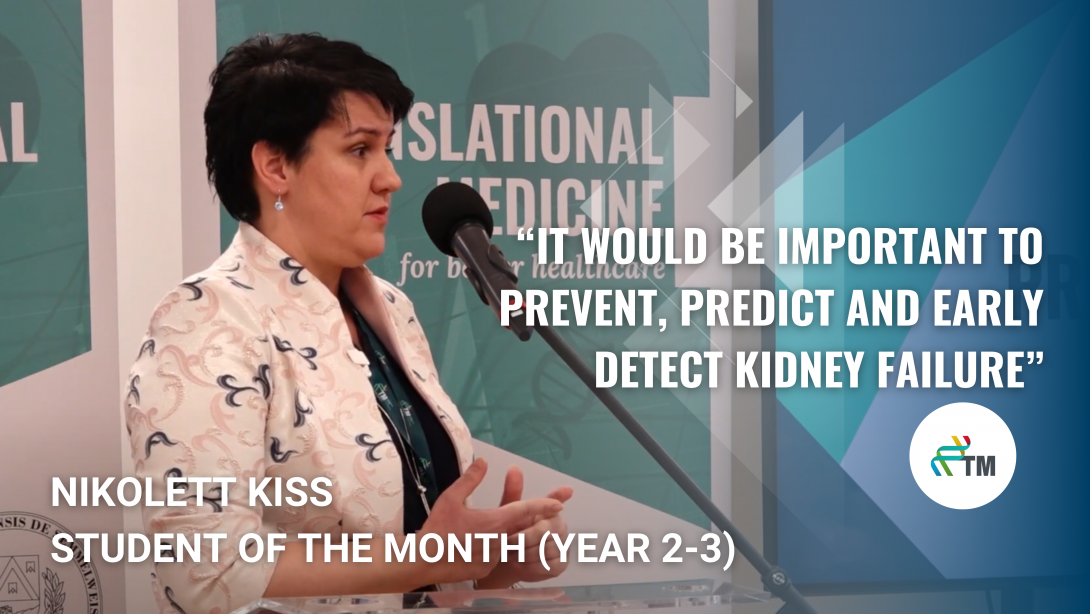
She investigates the role of biomarkers in critical care, and she has recently achieved a significant milestone by a publication in a top-ranked journal, reflecting the high quality and relevance of her work. In April, Nikolett Kiss was named Student of the Month (Year 2-3) at the Centre for Translational Medicine.
Dr. Kiss has been working as an anesthesia and critical care specialist at the Department of Intensive Therapy, Semmelweis University, and she started her Ph.D. studies three years ago. She chose CTM's program because she felt that its training system provided the background that would allow her to do research alongside her clinical work. Her first project was a meta-analysis related to cardiac surgery. She investigated the predictive value of urinary biomarkers in cardiac surgery-related acute kidney injury.
“My research topics come from clinical practice. The first is based on the fact that renal failure is common after cardiac surgery, and there is no available treatment for that. We can only give patients supportive therapy. Renal failure is a serious problem because it prolongs the patients’ hospital stay and also increases mortality. For this reason, it is important to prevent, predict and to detect it early. Our meta-analysis showed that measuring patients' urinary biomarkers provides acceptable accuracy in predicting acute renal failure. However, combining urinary biomarkers with clinical models provides better accuracy.”
Dr. Kiss's second project will be a clinical trial. In this study, she and her colleagues would like to clarify whether taking into account the value of central venous oxygen saturation can help to decide on the need for transfusion. The researchers are optimistic that calculating the value of intravenous saturation could help reduce the number of transfusions. This would be an advance because transfusions can have complications. Dr. Kiss would like to continue scientific work after obtaining her Ph.D degree and would like to participate in clinical research. She believes that academic work is essential.
(Szabó Emese)